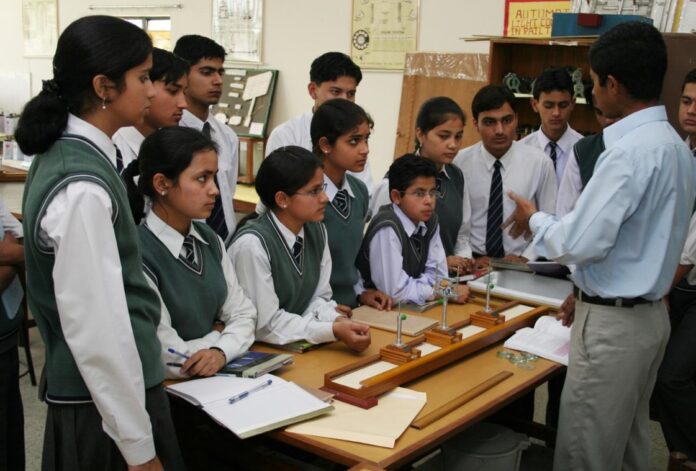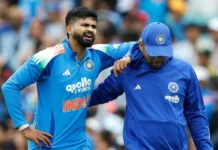- The virtual consultation was organized in collaboration with the ICPS Department, Karnataka and the Social Work Department of St. Joseph’s College
- The aim of the virtual consultation was to review the status of recommendations and gaps in the interventions pertaining to aftercare, and the way forward for 2022
- IAS Pallavi Akurathi, Director, ICPS, Govt. of Karnataka was invited as a Chief Guest; she suggested collaboration between the Govt. of Karnataka and local NGOs
Karnataka, 7th February 2022 – SOS Children’s Villages Bangalore conducted a virtual State level consultation on the status of aftercare youth and care leavers, in collaboration with ICPS Department, Govt. of Karnataka and the Social Work Department, St. Joseph’s College.
The dignitaries and participants at the virtual gathering included IAS Pallavi Akurathi, Director, ICPS, Govt. of Karnataka; Mr. Sumanta Kar, Secretary General, SOS Children’s Village of India; Father Varghese Pallipuram, Executive Director BOSCO; Dr. Janardhana N, Psychiatric Social Work Department, NIMHANS. Many eminent professionals working in the domain of child welfare and youth care, DCPOs of different districts, CWC Chairpersons, from different districts of Karnataka, also joined the session.

The aim of the virtual consultation was to review the status of recommendations and gaps in the interventions specific to the domain of aftercare, and the way forward for 2022; emphasis was on the subject in the current pandemic situation.
Speaking about the initiatives by the Karnataka Government, Chief Guest of the consultation programme, IAS Pallavi Akurathi, Director, ICPS, Govt. of Karnataka said, “The Government of Karnataka has initiated various initiatives like Government Homes for male care leavers, and the scheme ‘Upkar’ launched in the year 2021, providing financial support for youth. We can work towards a collaboration between the Government of Karnataka and various NGOs in Karnataka to support female caregivers, and enhance volunteer support for the National Tracking System. There are 3 major end goals of the aftercare model: economic independency, follow-up till marriage or proper settlement and individual care plan extension till economic independency.”
Mr. Sumanta Kar, Secretary General, SOS Children’s Villages of India said, “We, at SOS Children’s Villages of India, have been actively working for the cause of parentless or abandoned children, with prime focus being on empowerment, an important part of which is youth settlement. We ensure self-sufficient and contributing members to the society by providing long term care and support to the child. Care leavers are equipped with minimum basic education, at least one employability skill, good communication skills, working knowledge in IT and appropriate social skills. In this highly competitive world, youth must acquire relevant skills in order to be 21st century ready and mitigate the challenges that the pandemic has brought about in the job market. Reskilling is equally important as skilling, especially since the job market has undergone changes.”
Important Announcement – EasyShiksha has now started Online Internship Program “Ab India Sikhega Ghar Se”
Reservations in Government jobs, allowances for unemployed youth during the pandemic, bank loans at zero interest rate and entrepreneurship opportunities for aftercare youth and care leavers are paramount.
Dr. Janardhana N, Psychiatric Social Work Department, NIMHANS, presented his study “Support for youth leaving care from CCI” in collaboration with Udayan care, UNICEF, TATA Trust and NIMHANS. Through his study, he highlighted the current scenario of aftercare in Karnataka and the need for aftercare facilities. He proposed a sphere of aftercare with eight domains: Interpersonal skills and Social Relationships, Financial Independence and Career, Physical Health, Affordable and Adequate Housing, Educational and Vocational Skills, Mental and Emotional Wellbeing, Identity and Legal Awareness and Independent Living Skills. Effective implementation of aftercare under various policies, law and schemes, pre-aftercare planning and training, MIS and data maintenance of aftercare youth, collectivising care leavers and care leaver associations, and the need for further research on care leavers in the State, were the few recommendations set forth by Dr. Janardhana N in the study.
Father Varghese Pallipuram, Executive Director, BOSCO, highlighted the importance of planning and said, “The main objectives of the aftercare program are: first, to create a care plan for children after 18 years, who lack family support; secondly, support for children, who lag in education or technical aspects till they are employed, and finally for proper social reintegration. These processes should be included in the aftercare plan for each child.”
SOS Children’s Village of India’s settled youth, Niveditha, shared how the NGO has helped her towards a self-reliant future stating, “I am thankful to SOS Children’s Villages of India, my SOS Mother and siblings for helping me become who I am today. I was taken into care by SOS Children’s Villages of India when I was a mere 7-month-old baby. The SOS Children’s Villages of India community has facilitated me with countless opportunities, including best schooling, summer camps, Karate classes, graduation from a prestigious university and even placement.”
Top Courses in Software Engineering
The general discussion was concluded by identifying a volunteer group of professionals to fine-tune, draft recommendations and submit these to the Government of Karnataka.
About SOS Children’s Villages of India
Established in 1964, SOS Children’s Villages of India provides children without parental care or at the risk of losing it, a value chain of quality care services that goes beyond childcare alone, ensuring comprehensive child development. Our customized care interventions such as, Family Like Care, Family Strengthening, Kinship Care, Short Stay Homes, Foster Care, Youth Skilling, Emergency Childcare and Special Needs Childcare are aimed at transforming lives and developing children under our care into self-reliant and contributing members of society. We empower vulnerable families in communities to become financially independent, thereby enabling them to create safe and nurturing spaces for children under their care. Today, over 6,500 children live in 440 family homes inside 32 SOS Villages in 22 States/UTs, from Srinagar to Kochi and Bhuj to Shillong. They are lovingly cared for and nurtured by 600 SOS mothers and aunts. As India’s largest self-implementing childcare NGO, SOS Children’s Villages directly touches the lives of around 28,500 children every year.
ALSO READ: ConnectEd Technologies to provide Govt. school students in Gujarat with
Want to improve your skill visit: EasyShiksha



































































